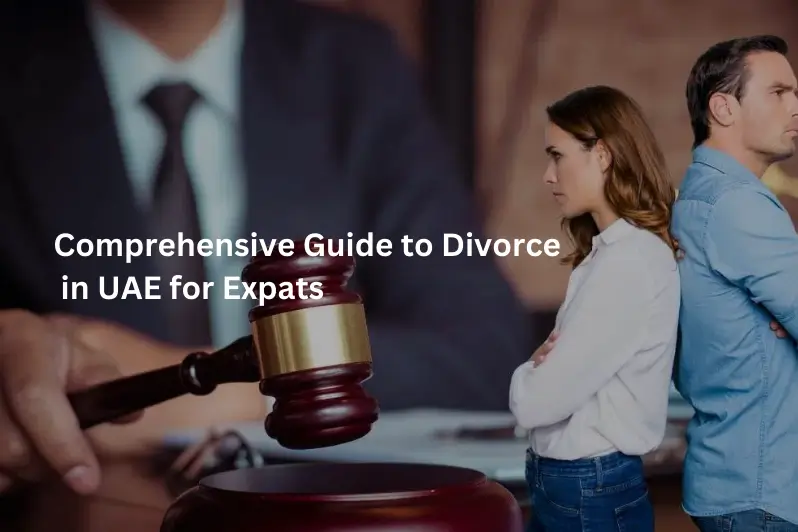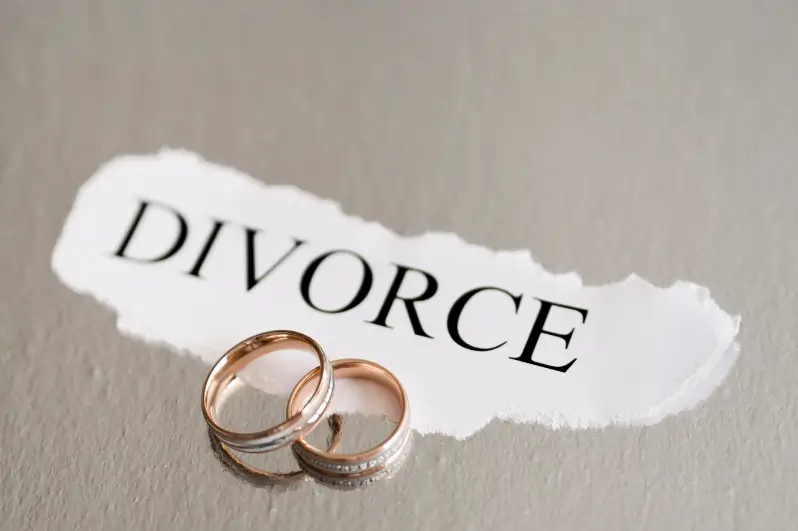Divorce in Dubai for expats is a sensitive and complex process, as different laws apply based on nationality and religion, making the legal landscape even more intricate.
This article provides guidance for expatriates on divorce procedures in Dubai in 2025.
It aims to help them understand their rights and responsibilities under two main legal frameworks: the UAE’s Personal Status Law and the Civil Personal Status Law.
We will also explain how our law firm can assist with divorce cases, ensuring that expatriates can access professional legal services during this difficult time.
Get professional help from our lawyers in UAE. Click the WhatsApp icon below.
فهرس المقال
Laws of Divorce in Dubai for Expats
Divorce laws in Dubai can differ based on the legal system that applies to the individuals involved in the marriage.
Two primary legal frameworks govern divorce cases for expatriates: the UAE’s Personal Status Law (no. 41 of 2024) and the Civil Personal Status Law (no. 41 of 2022).
Divorce for Expats Under UAE Personal Status Law
The UAE’s Personal Status Law primarily applies to Muslim couples, both UAE citizens and expatriates. Here are the key points regarding divorce under this law:
- Types of Divorce: There are two types: revocable divorce and irrevocable divorce. Revocable divorce occurs when a husband pronounces divorce but can take his wife back during the waiting period. Irrevocable divorce, once finalized, ends the marriage, and remarriage is only possible with a new contract and dowry.
- Documentation: The husband must file the divorce with the court within 15 days. If it is not filed in time, the wife may be entitled to compensation.
- Forced and Khula’ Divorce: Forced divorce occurs under duress, while Khula’ allows the wife to request divorce by offering compensation to the husband.
- Other Grounds for Divorce include Divorce Over Maintenance Failure, desertion, addiction, and Divorce for Cause (Harm).
Learn more about Divorce Law for Muslim Expats.
Divorce for Expats Under Civil Personal Status
The Civil Personal Status Law applies to non-Muslim expatriates, including foreign residents and non-Muslim UAE nationals. Key aspects include:
- Unilateral Divorce (Mutual Consent Divorce): Either spouse can initiate divorce by expressing their intention to end the marriage. No justification or evidence of harm is required.
- Court Procedure: The divorce procedure in Dubai requires filing with the court, and the divorce is finalized upon a court decision after proper notification to the other party.
- Agreement to Apply Another Law: Non-Muslims may choose to apply their home country’s laws regarding marriage and divorce if they prefer, provided this is agreed upon in advance.
Legal Services for Expatriates Divorce in Dubai
Navigating divorce in Dubai can be overwhelming, especially when dealing with complex legal systems.
Our lawyers and legal consultants in Dubai specialize in providing expert legal services to expatriates in Dubai, ensuring that every case is handled efficiently and with the utmost care.
Here’s how we can help:
- Divorce Filing and Representation: Our lawyers can assist you in filing for divorce, whether under the Personal Status Law or the Civil Personal Status Law, ensuring that the process is handled with expertise.
- Consultation on Legal Rights: We offer legal consultations to explain your rights during divorce and help you understand the implications of your specific case.
- Mediation and Settlement: If you are seeking an amicable resolution, our team specializes in mediation, helping spouses reach an agreement without going to court.
- Child Custody and Alimony: We guide child custody, visitation, and alimony, ensuring that your children’s best interests are prioritized.
- Post-Divorce Support: Our legal team can assist with any post-divorce issues, such as enforcing court orders, modifying agreements, and handling disputes.
Read the details of a legal case about the Rights of wives after Divorce in UAE.
FAQs on Divorce in UAE for Expats
Divorce in Dubai for expats involves many legal nuances, but with the right legal assistance, the process can be made smoother.
Reach out to our law firm for professional and compassionate legal representation during your divorce proceedings.
Contact our lawyers in the UAE for expert support. Click the WhatsApp icon below.




